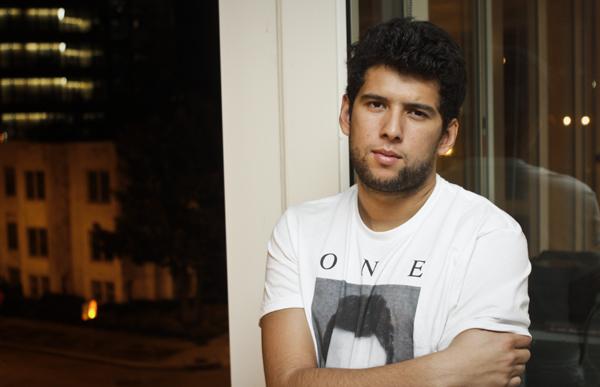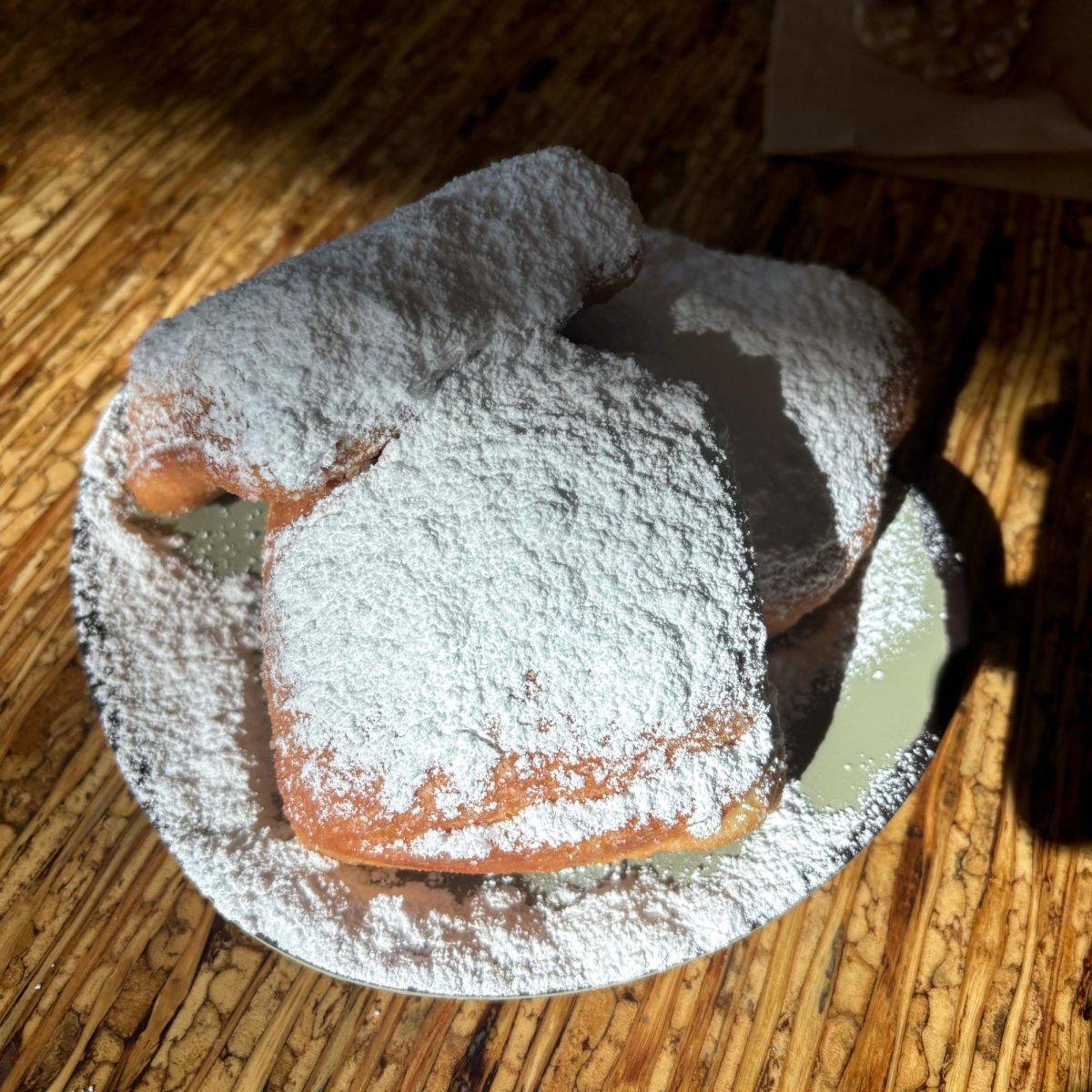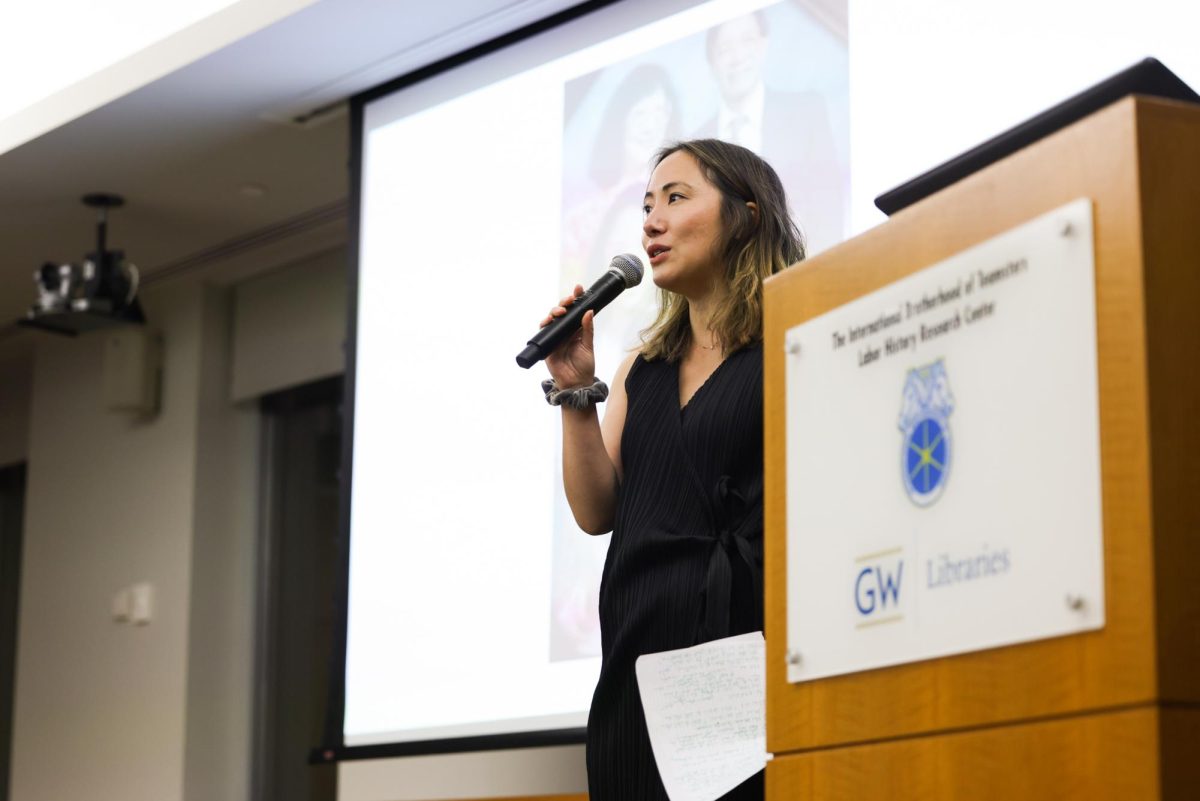The DJs weave in and out of beats, occasionally letting up to feed The Huxley nightclub’s ravenous 20-somethings bits of familiarity – 30 seconds of an REM or Lana Del Rey song – before returning to their blitz of house music.
Crowds have swelled lately for the weekend shows of seniors Nick Rouner and Ernesto “Andres” Stewart, who make up DJ group Nick & Andres. The duo has become a fixture of the D.C. house and electronic dance music scene, frequenting clubs like Heist and Lima, and recently commanding a 4,000-person crowd at the Life in Color festival.
They try to be social psychologists of the after-hours, reading the shimmering bodies on the dance floor, deftly charting the night’s course through a practiced union of eye and ear.
“On a base level, technically, anyone can do it,” Stewart said. “It’s about being able to read different crowds and read different environments you’re in.”
Hosting huge festivals like Sensation America, Electric Zoo and Ultra Music, cities like New York, Las Vegas, Los Angeles and Miami are house music’s American strongholds. But D.C.’s EDM scene is burgeoning – Club Glow at Echostage and Ultrabar were voted top venues by David Guetta in DJ Magazine’s 2010 poll.
“The first gig I ever played here, they had a DJ booth off in a side room,” Stewart said. “Today, the scene has definitely grown. People have gotten more into it.”
Mainly self-taught, Rouner and Stewart were both introduced to house music late in high school, and gradually built up the skills and technological understanding inherent to DJ-ing.
The two met their freshman year and formed their musical partnership – along with manager and GW senior Eddie Wharton – after playing and producing together in their free time.
And they started at the right time. Mohamed Kamal, founder of D.C.-based music production training company Audyolab, said the demand for house and electronic music has “probably doubled” in the last eight years.
Kamal runs intensive workshops for aspiring DJs and electronic artists across D.C., teaching music software mastery.
“Technology has democratized the creation of music. If you want to learn guitar, you need to understand the instrument itself, the strings, the notes, the technique between strumming versus picking,” Kamal said. “The way we teach through laptops is the same thing – the technique of the laptop instrument.”
Today, D.C. hosts dozens of house and EDM shows attached to big names like Afrojack and Nicky Romero. Trillectro, which celebrates the junction of hip-hop and electronica, took place this August. Life in Color, a house concert series that washes their crowds in neon paint, took over RFK Stadium in late September.
Rouner, also a jazz bassist, said marketing is key to differentiating the faces behind the turntable in a widening pool of aspiring DJs, .
“There is an innate musical sense and rhythmic timing that people have to have. Not all DJs play instruments. It’s a lot about knowing how to brand yourself,” Rouner said. “Anyone can become a DJ, but it’s, ‘How do you get out there?’”
Kamal, who also founded Gigturn, a social media platform where DJs can share their music and producers can connect DJs with venues, said EDM workshops now factor in branding and marketing.
“Most big talent agencies and artist labels will look at your Facebook fan count,” Komal said. “It shows that you are diligent in creating your fan base, and what you’ve been up to, that you really care.”
Kamal said Gigturn conducted a market study of demand for music production programs, finding that in 2005, Google saw 6.1 million searches a month on how to not only make house music but get gigs.
This summer, Kamal said that number shot up to an average 128 million searches a month for those same services.
In the heyday of house’s appeal and accessibility, Rouner and Stewart are preparing for an active round of performing, sitting on sets of unreleased tracks.
“We never set out to be big DJs,” Stewart said. “But we see our productions, and our edits and our reception to be mostly positive, and we’d like to see it grow.”






